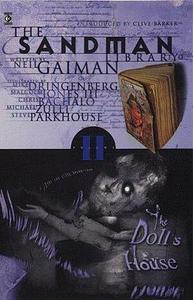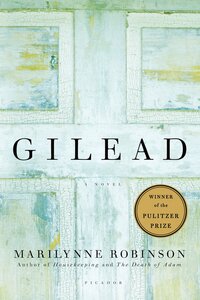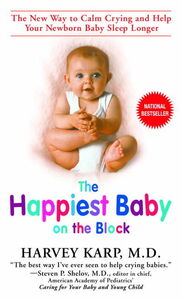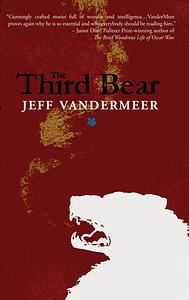Take a photo of a barcode or cover
matthewcpeck's Reviews (587)
Joe Hill's short story is a treat for my fellow NW Vermonters, or NE New Yorkers (the side of the lake is never made explicit). A bittersweet elegy for the expansive worlds of childhood, without the usual gut-wrenching horror you might expect from the writer. 3 1/2 stars.
Joy Williams' most outré book, a stunner with a title that's resulted in more than a few baffled Christian readers in the Amazon customer review section. It consists of 99 short pieces of a generously wide range: jokes, anecdotes, chilling tragedies, meditations, etc. Franz Kafka, O.J. Simpson, and the film 'A.I.' are all featured. And, indeed, there are stories in which God is a protagonist, frequently engaged in mundane earthbound chores.
If you've read Williams before, '99 Stories Of God' feels like the non-sequitur anecdotes that sprinkle her characters' dialogue, collected in a book of their own. But there's a structure to it that becomes clear as you advance, and a chunk of pieces united by a common thread (church, pets, suicide) gradually transitions into a new set with a new theme. And the pieces are arranged in a fashion I've never seen before: a chapter number followed by the story and followed finally by the title. This ending title serves sometimes as a self-effacing punchline, and at other times as a surprising spotlight aimed at an unexpected aspect of the preceding story.
That sort of wild push-and-pull is present throughout the stories. Even the tiniest tales end in an unpredictable event or observation. It's a haunting, hilarious, and absolutely compelling read throughout. Not a good Joy Williams book for a newbie, but readers already familiar with this wondrous writer will be rewarded and satisfied.
If you've read Williams before, '99 Stories Of God' feels like the non-sequitur anecdotes that sprinkle her characters' dialogue, collected in a book of their own. But there's a structure to it that becomes clear as you advance, and a chunk of pieces united by a common thread (church, pets, suicide) gradually transitions into a new set with a new theme. And the pieces are arranged in a fashion I've never seen before: a chapter number followed by the story and followed finally by the title. This ending title serves sometimes as a self-effacing punchline, and at other times as a surprising spotlight aimed at an unexpected aspect of the preceding story.
That sort of wild push-and-pull is present throughout the stories. Even the tiniest tales end in an unpredictable event or observation. It's a haunting, hilarious, and absolutely compelling read throughout. Not a good Joy Williams book for a newbie, but readers already familiar with this wondrous writer will be rewarded and satisfied.
A plotless epistolary novel consisting of the meditations, musings and memories of an elderly Iowan minister in the 1950s? 'Gilead' sounds fairly unappealing, but once you've adjusted to its spare cadence and careful, deliberate prose, you'll be absorbed and maybe transformed.
Marilynne Robinson is to fiction like Terrence Malick is to cinema: similarly irregular career schedules, and roughly similar themes (middle America, spiritual transcendence). 'Gilead' was her first novel since 'Housekeeping' in 1981, a book with some of the most rapturous prose I've ever had the pleasure of reading. Her second novel doesn't quite have the hallucinatory, tragicomic quality of its predecessor, but it exudes its own sort of enchantment. John Ames is a Congregationalist minister in the titular rural town. At age seventy-six, he is married to a much younger woman, and together they are the parents of a seven-year-old boy. 'Gilead' takes the form of an epic letter that Rev. Ames is writing to his boy, a letter to be read posthumously - there are no chapters, just passages separated by spaces. Between the pastoral advice and the discussions of doctrine and Scripture - which are never boring or "preachy" - Ames tells the stories of his passionate Abolitionist grandfather and pacifist father, ministers both. Conflict and disarming honesty come into play upon the arrival of Ames' namesake, the prodigal son of his closest friend. But I can't give away anything else.
As more eloquent reviewers have observed, 'Gilead' is not like other contemporary novels. In contrast to the current marketplace of heavy-handed 'Christian' movies and novels, it serves as a superior reminder of the usefulness of religious values (and I say this as a secular, rationalist-type guy): especially forgiveness. The voice of John Ames remains convincing from start to finish - at times I felt that that I could be reading a memoir of my grandfather or great-uncle. It lulls you with its low-key naturalism until you're suddenly hit with a paragraph or sentence of succint, profound beauty. About love, fathers and sons, God or just the amazing fact that this all exists - existence being something that Ames marvels over repeatedly. I'm probably just a little more sensitive than usual with a son of my own on the way, but 'Gilead' - along with the 'The Brothers Karamozov" - is one of the few works of fiction that actually makes me want to be a better person. Pulitzer deserved.
Marilynne Robinson is to fiction like Terrence Malick is to cinema: similarly irregular career schedules, and roughly similar themes (middle America, spiritual transcendence). 'Gilead' was her first novel since 'Housekeeping' in 1981, a book with some of the most rapturous prose I've ever had the pleasure of reading. Her second novel doesn't quite have the hallucinatory, tragicomic quality of its predecessor, but it exudes its own sort of enchantment. John Ames is a Congregationalist minister in the titular rural town. At age seventy-six, he is married to a much younger woman, and together they are the parents of a seven-year-old boy. 'Gilead' takes the form of an epic letter that Rev. Ames is writing to his boy, a letter to be read posthumously - there are no chapters, just passages separated by spaces. Between the pastoral advice and the discussions of doctrine and Scripture - which are never boring or "preachy" - Ames tells the stories of his passionate Abolitionist grandfather and pacifist father, ministers both. Conflict and disarming honesty come into play upon the arrival of Ames' namesake, the prodigal son of his closest friend. But I can't give away anything else.
As more eloquent reviewers have observed, 'Gilead' is not like other contemporary novels. In contrast to the current marketplace of heavy-handed 'Christian' movies and novels, it serves as a superior reminder of the usefulness of religious values (and I say this as a secular, rationalist-type guy): especially forgiveness. The voice of John Ames remains convincing from start to finish - at times I felt that that I could be reading a memoir of my grandfather or great-uncle. It lulls you with its low-key naturalism until you're suddenly hit with a paragraph or sentence of succint, profound beauty. About love, fathers and sons, God or just the amazing fact that this all exists - existence being something that Ames marvels over repeatedly. I'm probably just a little more sensitive than usual with a son of my own on the way, but 'Gilead' - along with the 'The Brothers Karamozov" - is one of the few works of fiction that actually makes me want to be a better person. Pulitzer deserved.
The Happiest Baby on the Block: The New Way to Calm Crying and Help Your Newborn Baby Sleep Longer
I'll give 3 1/2 stars to Dr. Karp's 'cuddle cure'. Although thus far untested by yours truly, it's logical, seemingly natural, and the culmination of years of hard work and scrupulous research. I was also intrigued by the asides detailing the child-rearing practices of 'primitive' cultures around the world.
I'll give 2 1/2 stars, however, to the book itself. As my wife and many other reviewers here have observed, it's a padded, highly repetitive, and needlessly drawn-out treatment for a concept that could have been perfectly communicated in a longform magazine article. I mean, an entire chapter about the 'shush' sound? Really? And Dr. Karp's writing style doesn't help matters. I realize that this sort of book should be designed for a wide audience, but the incessant exclamation points and appalling puns had me weary within the first 5 pages. It made 'The Birth Partner' seem like Dostoevsky in comparison.
In conclusion: 'The Happiest Baby On The Block' certainly contains useful, sane advice, and it is worth borrowing from a library or a friend. But I wouldn't recommend that you purchase it with actual money.
I'll give 2 1/2 stars, however, to the book itself. As my wife and many other reviewers here have observed, it's a padded, highly repetitive, and needlessly drawn-out treatment for a concept that could have been perfectly communicated in a longform magazine article. I mean, an entire chapter about the 'shush' sound? Really? And Dr. Karp's writing style doesn't help matters. I realize that this sort of book should be designed for a wide audience, but the incessant exclamation points and appalling puns had me weary within the first 5 pages. It made 'The Birth Partner' seem like Dostoevsky in comparison.
In conclusion: 'The Happiest Baby On The Block' certainly contains useful, sane advice, and it is worth borrowing from a library or a friend. But I wouldn't recommend that you purchase it with actual money.
3 1/2 stars. Highly eclectic, highly uneven story collection from acclaimed fantasist VanderMeer.
VanderMeer seems to actively fight against producing any story that could be described as "typical", but he returns to pet themes: elegies for past worlds or civilizations, grotesque biological experiments, a knack for mordant workplace satire.
My favorites include:
-"The Situation", which is like an episode of the office written by Ben Marcus & William Burroughs & guest-directed by David Cronenberg
-"The Goat Variations": a stunningly original approach to September 11th
-"Appoggiatura": a fragmentary, alphabetically arranged ode to a mythical Central Asian kingdom
-"The Magician": a haunting, perfectly crafted single-page afterword story.
Less perfect, in my view, are stories like "Finding Sonoria" - a private-eye version of "Tlön, Uqbar, Orbis Tertius" brought down by some sloppy prose - or "The Surgeon's Tale", an overlong collaboration with the awesomely named Cat Rambo, which tends towards sentimentality and unintentional comedy.
In the world of Jeff VanderMeer, it seems the rule is as follows: the more bizarre and challenging, the better.
VanderMeer seems to actively fight against producing any story that could be described as "typical", but he returns to pet themes: elegies for past worlds or civilizations, grotesque biological experiments, a knack for mordant workplace satire.
My favorites include:
-"The Situation", which is like an episode of the office written by Ben Marcus & William Burroughs & guest-directed by David Cronenberg
-"The Goat Variations": a stunningly original approach to September 11th
-"Appoggiatura": a fragmentary, alphabetically arranged ode to a mythical Central Asian kingdom
-"The Magician": a haunting, perfectly crafted single-page afterword story.
Less perfect, in my view, are stories like "Finding Sonoria" - a private-eye version of "Tlön, Uqbar, Orbis Tertius" brought down by some sloppy prose - or "The Surgeon's Tale", an overlong collaboration with the awesomely named Cat Rambo, which tends towards sentimentality and unintentional comedy.
In the world of Jeff VanderMeer, it seems the rule is as follows: the more bizarre and challenging, the better.






![[Citation Needed]: The Best Of Wikipedia's Worst Writing by Conor Lastowka](https://assets.thestorygraph.com/assets/placeholder-cover-a3ae92250eb3301e32dc3eabf8d50576c2f047dda89f6ee7cfa9a859cb1fd746.jpg)


